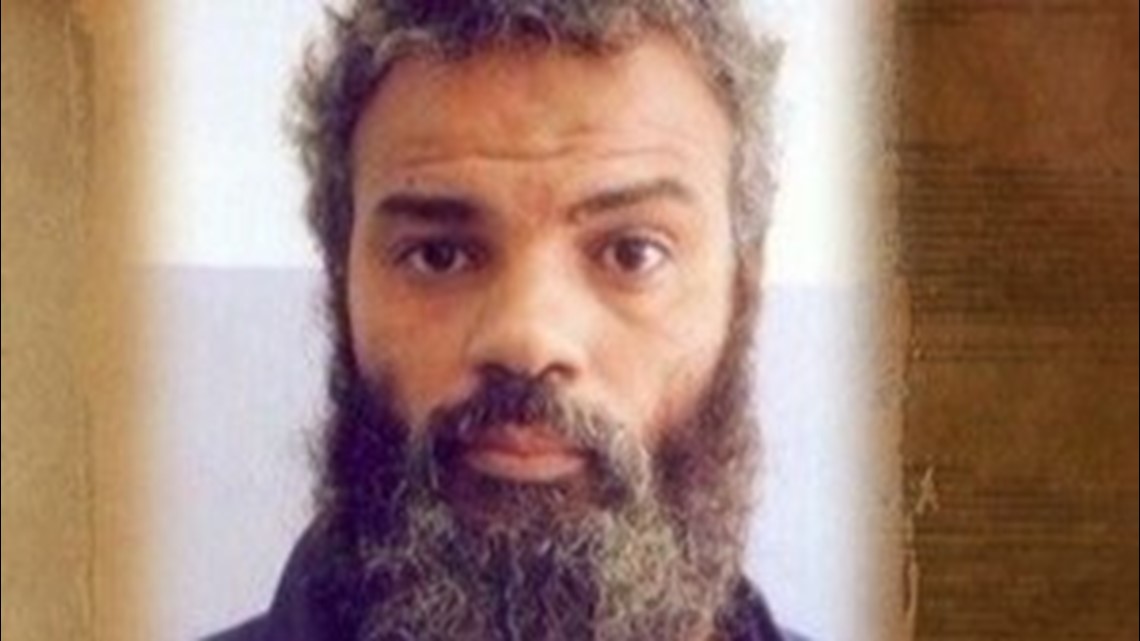

Washington (CNN) — Ahmed Abu Khatallah — the man the U.S. accuses of being the ringleader in the 2012 attack on the American diplomatic mission in Benghazi, Libya — has been brought to federal court in Washington, a U.S. official confirmed Saturday.
He had been interrogated aboard the USS New York after being captured earlier this month.
Abu Khatallah was awaiting an appearance before a federal judge in Washington after being flown from the ship, an amphibious transport dock, to the nation’s capital.
Authorities say Abu Khatallah is among the senior leaders of Ansar al Sharia, whose members were among several militias that participated in the attacks on U.S. government facilities in Benghazi on September 11-12, 2012. The attacks killed four Americans, including U.S. Ambassador to Libya Chris Stevens.
The attacks spawned a political controversy in the United States because some Republican lawmakers claim the Obama administration tried to mislead the public about them and should have done more to prevent them. The GOP critics say they plan to make Benghazi an issue for former Secretary of State Hillary Clinton, under whose watch the attacks occurred, should she decide to run for president.
The criminal investigation led by the FBI has been extraordinarily challenging, authorities say, in part because lack of Libyan government control in the city prevented investigators from visiting the crime scene for weeks.
U.S. officials, however, say they collected surveillance video, phone eavesdropping and witness statements to bring charges against Abu Khatallah and others involved. They are charged in a criminal complaint in federal court in Washington.
Abu Khatallah became the face of the militant attack, and a top target for the U.S., after he cultivated a celebrity profile in the wake of the attacks, meeting with journalists and granting interviews. He denied to CNN’s Arwa Damon that he participated in the attacks.
U.S. military commandos captured Abu Khatallah in a nighttime raid June 15-16. U.S. intelligence assets concocted a ruse to lure him to a villa where the Americans surprised him. The commandos, accompanied by several FBI agents, came ashore by boat and quickly took him away. He remained on the USS New York, undergoing questioning by a team from the FBI-led High-Value Detainee Interrogation Group, until he was taken to court on Saturday.
The extended questioning, without Abu Khatallah’s being advised of his Miranda rights to remain silent, is being done under an Obama administration policy intended to allow interviews for intelligence purposes. Attorney General Eric Holder authorized lengthier pre-Miranda questioning in a memo issued in December 2010.
The memo says the extended questioning can be done in exceptional cases if investigators “conclude that continued unwarned interrogation is necessary to collect valuable and timely intelligence not related to any immediate threat.”
It’s a model the government has used before. In 2011, the U.S. military captured Ahmed Abdulkadir Warsame, a military commander with the Somali militant group Al-
Shabaab who helped broker ties between his group and the Yemen-based al Qaeda in the Arabaian Peninsula.
Warsame was questioned aboard a military ship for two months before he was read his Miranda rights. He later pleaded guilty to terrorism-related charges and spent months cooperating with investigators, providing information for other cases.
